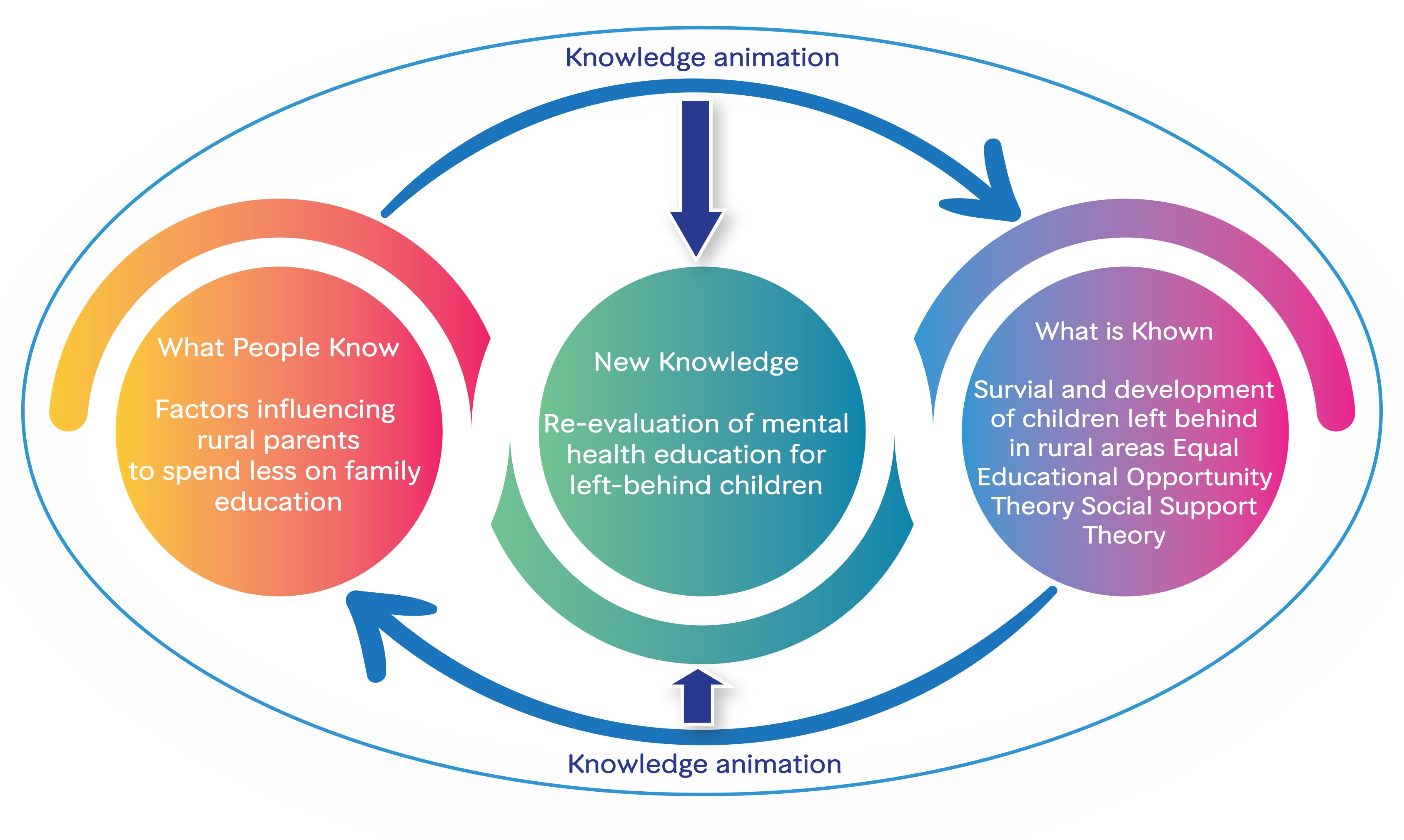The Left-behind Children Family Education in Xianjie Community Anning City, Yunnan Province, China
Main Article Content
Abstract
The purposes of this research were 1) to study the current situation of the left behind children's family education in the Xianjie community of Anning, City Yunnan Province, China; 2) to investigate factors that rural parents spend less on home education; and 3) to find ways for parents of left-behind children to improve the lack of family education in the Xianjie community of Anning City. This study utilizes a quantitative design by distributing electronic questionnaires to the left-behind children of XianJie Middle School in the XianJie Community of Anning City, Yunnan Province. The research methods employed include literature review, questionnaire, and descriptive statistics for data analysis. The researcher used random sampling to determine the number of students and selected 244 left-behind students from low-income families aged 12-17 years old who have been studying at XianJie Middle School in XianJie Community for three months and above for the questionnaire survey. This study confidently employed social support theory as the primary theory and equal educational opportunity theory as the secondary theory.
The results revealed that: prolonged absence of parents due to work significantly affects the living and learning habits of left behind children in the Xianjie community, leading to a lack of supervision and care. Economic pressures on families contribute to the neglect of family education, and insufficient educational resources further exacerbate the situation. The findings suggest that creating a supportive and fair educational environment, enhancing parental education, and increasing community and governmental involvement are crucial steps in improving the well-being and educational outcomes of left-behind children. Therefore, it is essential for policymakers to collaborate with schools, communities, and social organizations to establish community-based support mechanisms that ensure equal educational opportunities and resources for these children and their families.
Article Details

This work is licensed under a Creative Commons Attribution-NonCommercial-NoDerivatives 4.0 International License.
เพื่อให้เป็นไปตามกฎหมายลิขสิทธิ์ ผู้นิพนธ์ทุกท่านต้องลงลายมือชื่อในแบบฟอร์มใบมอบลิขสิทธิ์บทความ ให้แก่วารสารฯ พร้อมกับบทความต้นฉบับที่ได้แก้ไขครั้งสุดท้าย นอกจากนี้ ผู้นิพนธ์ทุกท่านต้องยืนยันว่าบทความ ต้นฉบับที่ส่งมาตีพิมพ์นั้น ได้ส่งมาตีพิมพ์เฉพาะในวารสาร วิชาการธรรม ทรรศน์ เพียงแห่งเดียวเท่านั้น หากมีการใช้ ภาพหรือตารางของผู้นิพนธ์อื่นที่ปรากฏในสิ่งตีพิมพ์อื่นมาแล้ว ผู้นิพนธ์ต้องขออนุญาตเจ้าของลิขสิทธิ์ก่อน พร้อมทั้ง แสดงหนังสือที่ได้รับการยินยอมต่อบรรณาธิการ ก่อนที่บทความจะได้รับการตีพิมพ์References
Bengang, D. (2022). Family Education and Social Work Intervention Strategies for Urban Left-behind Children under the Perspective of Social Support Theory. Shandong: Shandong University.
Jian, C. (2014). Study on Equalisation of Compulsory Education for Children of Migrant Workers in Fuqing City. Fujian: Fujian Agriculture and Forestry University.
Jie, L. (2016). Research on education problems of rural left-behind children. Journal of Kaifeng College of Education, 1, 275-277.
Jingzhong, Y., et al. (2006). Lifelong Effects of Parents Going out for Work to Left-Behind Children [In Chinese.] Chinese Rural Economy, 1, 57-65.
Likert, R. (1932). A technique for measurement of attitudes. Archives of Psychology, 22(140), 5-55.
Liping, Z. (2021). A Practical Study on Social Work Intervention in Family Education of Rural Left-behind Children. Zhangzhou: Minnan Normal University.
People's Government of Anning City News. (2023). Statistical Bulletin on the Development of Education in Anning 2022. Retrieved from http://www.kman.gov.cn/c/2023-03-17/6582595.shtml
Wen, J. and Zhu, M. (2013). The Handbook of Social Work Practice. Chinese: Social Sciences Literature Publishing House.
Xiao, X. (2018). Research on Social Work Intervention in Family Education Problems of Rural Left-behind Children. Qinghai: Qinghai Normal University.

